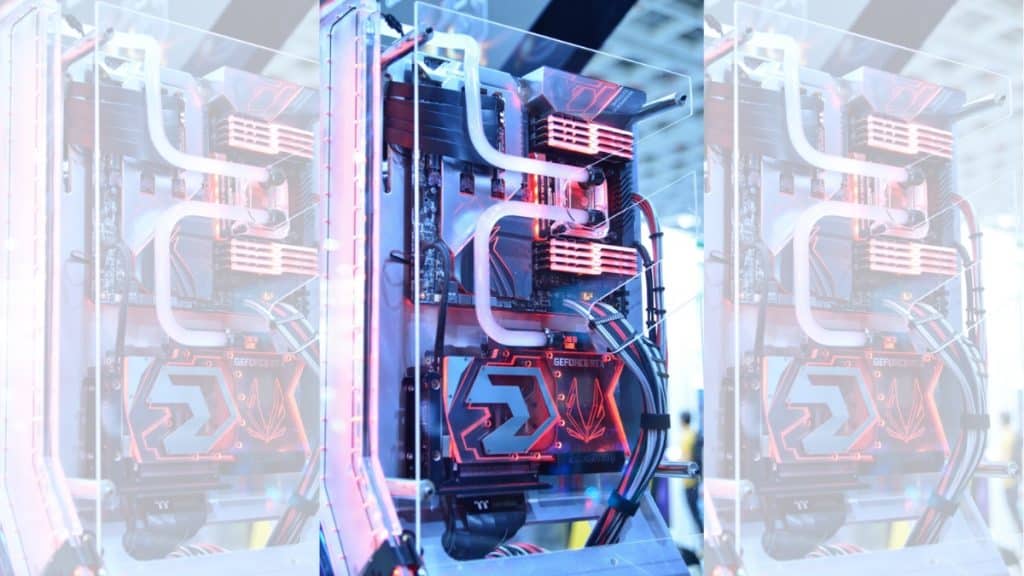What if the thrill of Las Vegas could be experienced from the comfort of your living room? The casino industry, once defined by the clinking of chips and the whir of slot machines, has entered a new era where technology doesn’t just change the game – it enhances every aspect of the casino experience.
We’re now talking about a world where digital innovation allows players to dive into a gambling experience that’s not only more immersive but also remarkably secure and tailored to individual tastes. Virtual Reality transports you into a digital casino floor, Artificial Intelligence crafts a gaming session just for you, and blockchain technology ensures that every bet is transparent and every win is secure.
This fusion of tech with traditional gambling practices has not only revolutionized how we play but also how we perceive the very essence of platforms like casino incognito. As we delve deeper into this article, we’ll explore how these technological advancements are setting new standards for what players expect from their casino entertainment.
The VR breakthrough in gambling
The VR gambling market was valued at USD 1.10 billion in 2021, projected to grow at a 30.2% CAGR through 2030. This statistic isn’t just a number; it’s a testament to how VR is fundamentally changing our interaction with gambling.
Consider VR casinos. They’ve taken the essence of a physical casino and digitalized it, allowing you to walk through a virtual casino floor, interact with games, and socialize with others, all from your living room. Here, VR isn’t just technology; it’s an experience. It engages your senses in ways traditional online gambling can’t. You’re not merely watching a screen; you’re in the game, feeling the weight of chips, hearing the chatter around you, and even experiencing the thrill of a win in 3D.
This immersive quality is what we discussed when we talked about experiencing Vegas from home. VR doesn’t just mimic; it redefines what it means to gamble. Instead of a passive activity, it becomes a lived moment, one where the lines between digital and physical blur. You’re not just playing; you’re there, in our virtual Vegas, where every spin, roll, or card dealt could be part of your story.
In this new landscape, VR offers more than entertainment; it provides a canvas for memories, making the act of gambling an experience that’s as much about the journey as it is about the potential reward.
The silent dealer at your table
AI in casinos personalizes gaming by analyzing player behavior, offering tailored experiences. Beyond its role in security, AI serves as an unseen dealer, crafting your gaming session to fit your tastes. Imagine a scenario where the games you’re presented with are based on what you’ve enjoyed before, or promotions pop up just when you’re about to lose interest. This personalization extends to customer service where AI chatbots provide instant, relevant support, making the interaction feel less like dealing with a machine and more like conversing with a knowledgeable friend.
Yet, with such depth in personalization comes ethical considerations. Your data privacy is at stake here. How much of our information are we willing to share for a better gaming experience? It’s a delicate balance between personalization and privacy infringement. We must navigate this space with caution, ensuring that the benefits of AI in enhancing our gaming journey do not come at the cost of our personal security or autonomy.
Building on the immersive world created by VR, AI further personalizes and refines this environment, making it not just about seeing and feeling but also about being recognized and catered to. Together, they craft a gaming world that feels uniquely ours.
Crypto chips
Blockchain ensures game fairness and transaction security through decentralized ledgers. This technology introduces a layer of transparency that was previously unimaginable in gambling. Every spin, every bet, and every win is recorded immutably, providing a clear, verifiable history of game outcomes. This openness not only reduces the potential for fraud but also instills trust in the system.
Cryptocurrencies have found a new home in this ecosystem, allowing for anonymous, swift, and secure transactions. Casinos like FunFair have embraced blockchain to offer games where players can see the fairness of each round. With blockchain, there’s no need for blind faith in the house; you can verify the integrity of the game yourself.
The implications for regulatory compliance are profound. While it offers a pathway to more transparent operations, it also challenges existing regulations, necessitating new frameworks that can keep pace with technological advancements.
In complementing AI and VR, blockchain adds a crucial dimension of security and trust. Where AI personalizes and VR immerses, blockchain secures, ensuring that our casino experience is not only tailored and engaging but also fair and transparent. This trio of technologies is reshaping the gambling landscape, making it more player-centric and trustworthy than ever before.
The cards ahead
As we reflect on the fusion of technology with gambling, it’s clear that what we once knew as casino entertainment is being redefined. For the modern player, gambling is no longer just about chance; it’s an experience enriched by personalization, security, and immersion.
Looking ahead, casino technology might unveil fully AI-run casinos, where algorithms not only deal but also manage entire gaming environments. Or perhaps, we’ll see NFTs becoming the new gambling tokens, offering unique, collectible rewards. These possibilities suggest a gambling landscape where technology doesn’t just enhance but continuously evolves the very essence of play.
